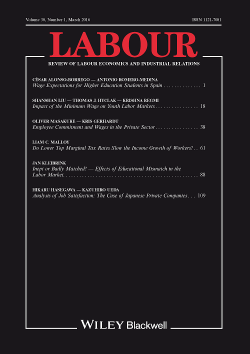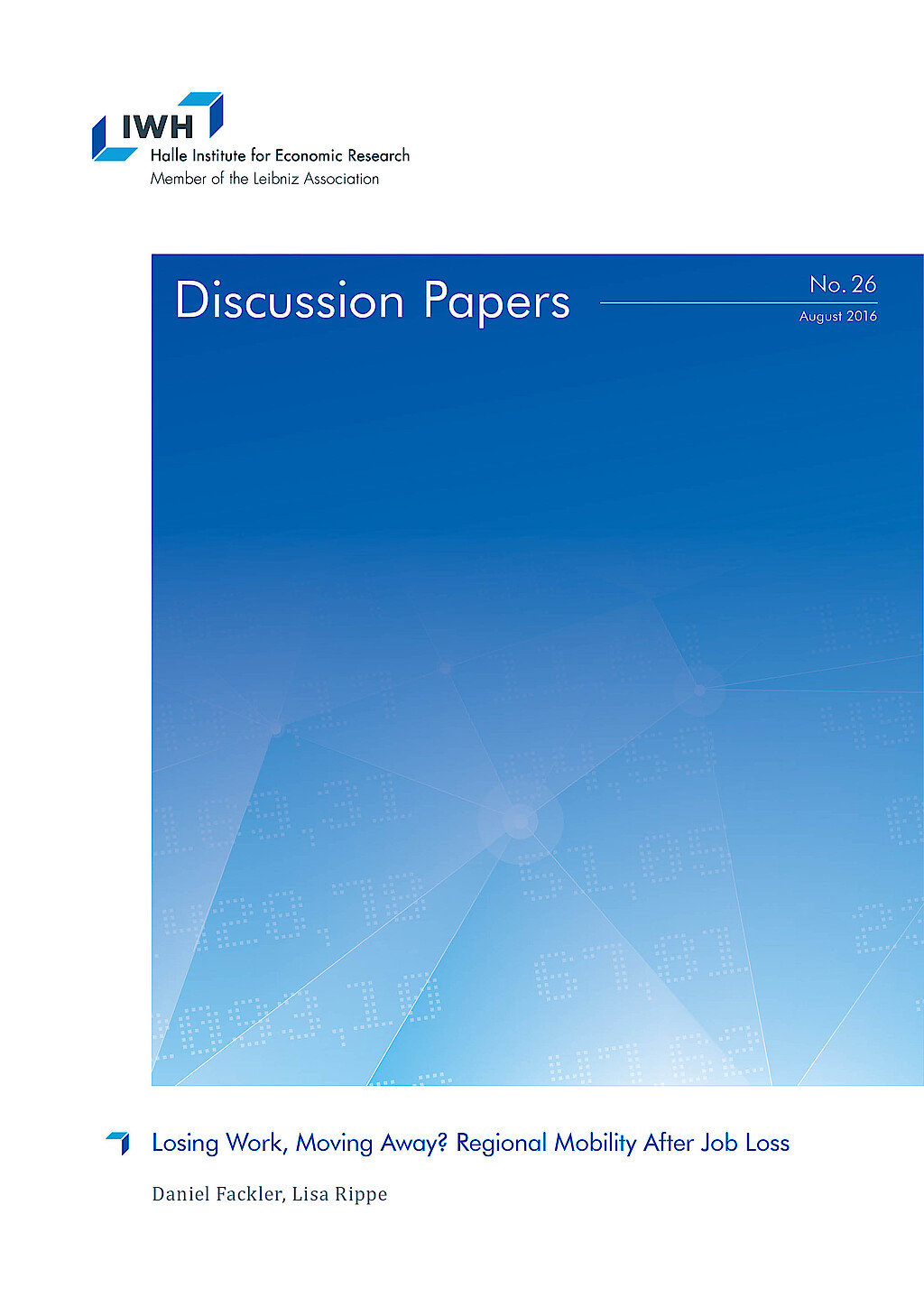
Losing Work, Moving Away? Regional Mobility After Job Loss
Using German survey data, we investigate the relationship between involuntary job loss and regional mobility. Our results show that job loss has a strong positive effect on the propensity to relocate. We also analyse whether displaced workers who relocate to a different region after job loss are better able to catch up with non-displaced workers in terms of labour market performance than those staying in the same region. Our findings do not support this conjecture as we find substantial long-lasting earnings losses for movers and stayers and even slightly but not significantly higher losses for movers.






